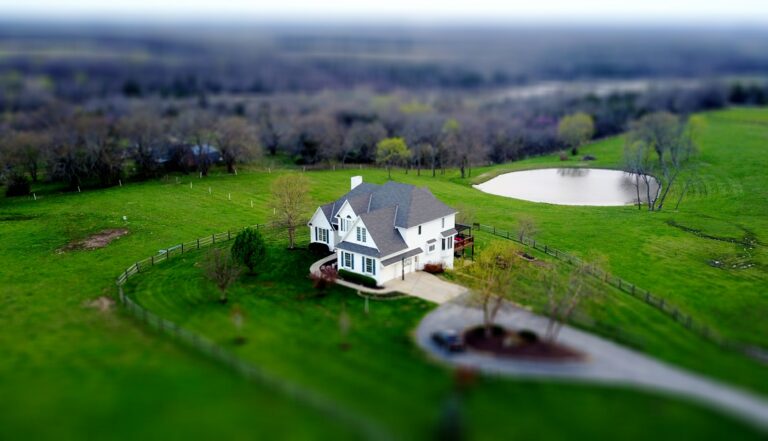Preparing and hosting a successful real estate open house is a crucial aspect of promoting a property for sale. This event allows potential buyers to explore a property and ask questions while allowing sellers to showcase their property’s best features. To ensure a positive experience for all attendees, it’s essential to take the appropriate steps in planning, marketing, setting up, and hosting a real estate open house.
An open house event is more than just showcasing a property; it’s about creating an enjoyable and engaging atmosphere that potential buyers won’t forget. From making the necessary repairs to decluttering and staging the home, these efforts will contribute to a successful open house. By promoting the event, utilizing effective marketing strategies, and working closely with a skilled real estate agent, sellers can increase their chances of a successful sale.
Once the stage is set, it’s time to shift focus to hosting the open house itself. This includes greeting attendees warmly, providing information about the property, and answering any questions they may have. By being present and attentive during the event, sellers can create a positive connection with potential buyers, leaving them with a lasting impression of the house on offer.
Key Takeaways
- Preparing for an open house involves attention to detail, repairs, and staging
- Marketing and promotion are crucial for attracting potential buyers to the event
- Hosting the open house requires being present, attentive, and knowledgeable
Understanding Real Estate Open Houses
A real estate open house is a scheduled event wherein a house listed for sale is open to the public for viewing. It provides potential homebuyers an opportunity to explore the property without setting up a private appointment. Realtors often host open houses to attract a larger audience and create a sense of urgency among interested parties.
To host a successful open house, there are several steps to consider. The first step is to prepare the premises by ensuring that the house is clean and decluttered. Remove any unnecessary items and personal belongings to help potential buyers envision themselves living in the space. Moreover, make sure to clean every room thoroughly, paying special attention to the kitchen and bathrooms.
Marketing efforts play a significant role in a successful open house. Utilize multiple channels to reach a wide audience, such as online listings, social media promotion, and physical signage around the neighborhood. You can also ask neighbors to spread the word about the open house. It’s crucial to schedule the event on a convenient day and time for potential buyers, such as weekends when more people have the time to visit.
When hosting the open house, it’s essential to create a welcoming atmosphere. Set the right temperature, have soft background music playing, and let in natural light by opening curtains and blinds. Offering light refreshments, such as cookies or bottled water, can create a memorable impression on prospective buyers.
Lastly, it’s important to allow the real estate agent to take control during the open house. They are the experts and will be able to answer any questions buyers may have about the property, neighborhood, and current market trends. The homeowners should stay away from the house during the event as their presence can make potential buyers feel pressured or uncomfortable while exploring the property.
By following these guidelines, a real estate open house can be an effective marketing tool that exposes the property to a larger audience of potential buyers, potentially increasing the chances of a successful sale.
Planning a Real Estate Open House
Deciding on the Date and Time
When planning a real estate open house, it is important to choose the right date and time. The most common days for hosting open houses are weekends, specifically Saturdays and Sundays. This is when potential buyers have more availability to visit the property. Select a time that maximizes natural daylight and be sure to schedule around any major local events that could conflict.
Selecting the Property
Choose a property that is attractive to potential buyers and exhibits qualities that set it apart from other homes on the market. Ensure that the home is clean, well-maintained, and has a compelling curb appeal. Make sure to address any damages or issues before the event to present a move-in ready home.
Planning the Layout
The layout of the open house should be inviting and allow for easy movement throughout the property. Remove or rearrange any furniture or belongings that may block paths or common areas. Set up visual aids, such as flyers or brochures, highlighting the property’s features. Consider offering light refreshments or snacks and setting the table as if for a dinner party to create a welcoming atmosphere.
Preparing Property Documentation
Have all necessary property documentation on hand, including property guides, floor plans, and disclosures. Potential buyers should have easy access to this information during the open house. Ensure all materials are well-organized and professional-looking to instill confidence in both the property and you, the real estate agent.
Budgeting for the Event
A successful open house includes setting a reasonable budget to cover the necessary expenses. Allocate funds for marketing materials, advertising, refreshments, and any additional items or services required for the event. Keep track of spending and make adjustments as needed to stay within the budget.
Marketing the Open House
Offline Marketing Strategies
To prepare and host a successful real estate open house, consider employing a variety of offline marketing methods. These may include:
- Signage: Put out open house signs early and at strategic locations to catch attention of passers-by.
- Flyers: Have open house flyers on hand to distribute at the event and at area businesses.
- Local Newspapers Ads: Advertise your open house in the local newspapers to reach potential buyers.
- Direct Mail: Send postcards or letters to neighbors and prospects inviting them to the open house.
- Networking: Connect with other real estate professionals and attend community events to spread the word.
Online Marketing Strategies
Leverage digital platforms to market your open house effectively:
- Real Estate Websites and Portals: List your open house on popular real estate websites and portals, such as Zillow and Realtor.com, to capture the attention of online property seekers.
- Email Marketing: Send out emails to your contact list with attractive visuals and essential information about the open house.
- Virtual Tours: Offer virtual tours of the property on your website or real estate portal to entice viewers who may want to see the property in person.
Social Media Promotion
Utilize social media platforms to reach a wider audience and increase the visibility of your open house:
- Facebook: Create a Facebook event and invite followers, friends, and relevant groups to the open house.
- Instagram: Post captivating images or video clips of the property while incorporating event details in the caption.
- Twitter: Tweet about the open house using strategic hashtags and link to your online listings or website for more information.
- Pinterest: Pin eye-catching images of the property along with details about the event to attract interested users.
Press Releases
Maximize your open house exposure by sending out press releases to local media outlets:
- Craft a Compelling Story: Develop an interesting angle about the property or neighborhood that may capture the interest of journalists and readers.
- Target Appropriate Media Outlets: Research and approach media outlets that cater to local real estate news or have featured similar events in the past.
- Follow-up: Reach out to journalists after sending the press release to ensure it has been received and answer any questions they may have.





